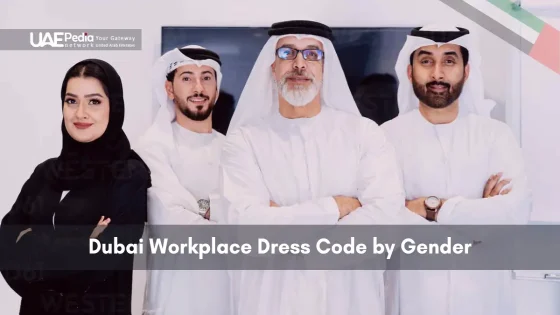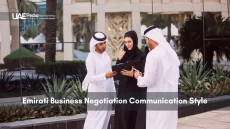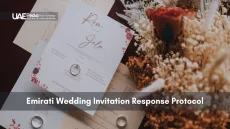Did you know 83% of Emirati households include three generations under one roof? This isn’t just about shared space—it’s a living bridge between heritage and hyper-modernity. In a city racing toward the future, certain threads remain unbroken: the quiet strength of family, the warmth of shared stories, and the quiet guidance of those who’ve shaped today’s skyline from yesterday’s sand.
Here, time-honored values don’t gather dust—they evolve. You’ll find them in the majlis (gathering spaces) where elders sip Arabic coffee while grandkids swipe tablets, and in the way young professionals still seek their grandparents’ advice before major decisions. It’s a dance of memory and momentum, where every step forward glances back.
This guide isn’t a rulebook. Think of it as your compass for navigating relationships, daily rhythms, and unspoken codes that make this place pulse. We’ll explore how:
- Generational bonds shape everything from weekend plans to business deals
- Modern life adapts rituals without erasing their roots
- Quiet gestures often speak louder than words
Consider this your backstage pass to the soul behind the skyscrapers. Let’s walk softly, listen closely, and discover why some things only grow richer with time.
The Historical Tapestry of Emirati Culture
Picture pearl divers plunging into turquoise waters 200 years ago—their grit still echoes in today’s glittering skylines. This land’s story isn’t just dates on a timeline. It’s salty sea air mixing with desert winds, creating a culture that bends without breaking.
Origins and Evolution of Local Traditions
Before oil, there were ghaf trees offering shade and falaj irrigation turning sand into life. Communities thrived on trade routes, swapping pearls for spices. British treaties in the 19th century reshaped coastlines, but inland? Bedouin poetry competitions and date harvest rituals stayed vibrant.
From Fishing Villages to Modern Metropolises
Abu Dhabi’s first permanent house was built in 1761. Fast-forward to 1966: black gold transformed mud-brick ports into steel giants. Yet wander the souks today, and you’ll still hear fishermen bartering like their ancestors—just with smartphones in hand.
Three threads hold this tapestry together:
- Trade DNA: From dhows to megaports, commerce fuels progress
- Adaptive resilience: Pearling collapsed? Oil rose. Oil prices dip? Tourism soars
- Silent keepers: Grandmothers preserving recipes, uncles recounting moonlit navigation tricks
Modern towers don’t overshadow history here—they’re built on its shoulders. Next time you sip karak chai, remember: that sweet blend? It’s 300 years in the making.
dubai elderly respect cultural expectations
Ever noticed how a simple handshake here often becomes a doorway to deeper connection? In the United Arab Emirates, age isn’t just a number—it’s a compass guiding social rhythms. The quiet nod when elders enter rooms, the way advice flows like cool water from seasoned voices—these aren’t relics. They’re living traditions shaping coffee chats and boardroom decisions alike.
Guiding Hands Across Generations
Morning gatherings tell the story best. At family breakfasts, you’ll see teens instinctively pour gahwa (Arabic coffee) for grandparents first. This unspoken rule extends beyond homes: professionals often consult senior colleagues before major proposals. As one local entrepreneur puts it:
“Our past walks beside us—not behind.”
Three threads bind these interactions:
- Priority seating for elders in social spaces
- Younger voices waiting for cues before contributing
- Shared decision-making that honors experience
Gender roles add texture to this tapestry. While men traditionally lead public forums, women often steer family councils—guardians of ancestral recipes and conflict-resolution techniques. Both roles interlock like puzzle pieces, maintaining balance.
Modern workplaces adapt these customs creatively. Startups might pair junior staff with veteran mentors, blending fresh ideas with hard-won wisdom. Weekend markets buzz with grandmothers teaching grandkids bartering tactics used in 19th-century souks. Here, progress doesn’t erase roots—it replants them in richer soil.
Understanding Family, Hospitality, and Customary Etiquette
You know that moment when a shared meal becomes a masterclass in unspoken rules? Here, everyday interactions reveal layers of meaning—like how a steaming pot of harees (wheat-and-meat porridge) isn’t just dinner, but a living archive of family bonds. Let’s unpack the invisible codes shaping connections.
Threads That Bind Generations
Weekend gatherings showcase the rhythm of kinship. Younger members instinctively serve elders first—not as obligation, but as natural as breathing. A local teacher once told me:
“Our homes are museums where traditions don’t sit behind glass.”
This plays out in subtle ways:
- Children address seniors with formal titles, even in casual settings
- Major decisions involve family councils, blending modern logistics with ancestral wisdom
- Stories flow freely during meals, turning recipes into time capsules
Greetings as Living Art
First impressions here have their own grammar. A handshake often blooms into a hand-over-heart gesture—a silent “I see you.” Remember: the right hand reigns supreme. Whether passing documents or accepting dates, this custom stems from historical hygiene practices and enduring symbolic value.
Three hospitality must-knows:
- Light pressure during handshakes—firm grips feel aggressive
- Guests receive gahwa (coffee) in delicate cups, refusal considered rude
- Complimenting decor? Do it twice—modesty demands initial deflection
These rituals aren’t performative. They’re the social glue binding boardrooms to beach picnics. Master them, and you’ll find doors opening—literally.
Modern Influences and Business Etiquette in Dubai
Ever wondered why a handshake here might seal a deal faster than a dozen emails? The city’s boardrooms hum with a unique energy—part Bedouin campfire wisdom, part Silicon Valley speed. This isn’t just about exchanging cards; it’s about building bridges between centuries-old customs and tomorrow’s innovations.
Merging Tradition with Contemporary Business Practices
First meetings often feel like slow dances. You’ll discuss family before figures, share mint lemonade before contracts. A tech CEO once explained:
“We measure trust in sunrises—how many dawns have you shared coffee with someone?”
Three modern twists on tradition:
- Titles matter—address partners as Sheikh or Ustadh until invited otherwise
- Weekend shifts: Many firms operate Sunday-Thursday but respect Friday prayers
- Digital majlis: Video calls often begin with five minutes of personal check-ins
Social Etiquette in Diverse, Global Settings
Dinner invitations reveal the real magic. Arrive 15 minutes late—it’s polite. Compliment the lamb machboos, but leave room for thirds. Watch how locals navigate international crowds: switching effortlessly between Arabic and English, adjusting formality like thermostat settings.
Key moves for global players:
- Dress conservatively—dark suits reign even in desert heat
- Gift-giving? Skip alcohol; opt for artisanal dates or silver coffee pots
- Business cards pass right-handed, received with both palms
Master these rhythms, and you’ll find doors opening wider than Burj Khalifa’s observation deck. After all, in a city where skyscrapers touch clouds, success still grows from human connections.
Navigating Social Norms and Local Laws
Ever walked through a city where unspoken rules hum beneath the surface? Here, blending in means understanding invisible lines—not just between skyscrapers, but between people. Let’s decode the quiet codes that keep daily life flowing smoothly.
Key Customs and Do’s & Don’ts in Public Spaces
Sun-drenched sidewalks and air-conditioned malls share one truth: local culture thrives on subtle courtesies. A resident taxi driver once advised:
“Watch where others pause—that’s your guidebook.”
Three essentials for public places:
- Lightweight fabrics that cover shoulders/knees—comfort meets courtesy
- Save tight hugs for private spaces; brief handshakes rule outdoors
- Always offer/receive items with your right hand—the left hand stays sidelined
Traffic laws reveal deeper values. Jaywalking fines aren’t about revenue—they mirror society’s rhythm. Crosswalks become impromptu meet-and-greet zones, especially during Ramadan when patience stretches like sunset shadows.
Camera enthusiasts, take note: photographing government buildings or strangers without consent breaches trust. Instead, focus on geometric mosques or spice-scented souks—these scenes welcome lenses. And that golden hour selfie? Perfect, unless you’re near military zones.
Nightlife has its own playbook. Bars exist, but public intoxication? That’s a hard no. Save the champagne toasts for licensed venues. Remember: rules here aren’t hurdles—they’re handrails guiding you toward richer connections.
Exploring Bedouin Heritage and Emirati Cultural Sites
Ever watched sunset colors bleed into neon skyline? That’s where Bedouin soul meets urban energy here. Sandstone forts stand sentry beside glass towers, whispering stories through their stones. This region breathes history through every spice-scented breeze and woven palm-frond artwork.
Bedouin Traditions Infused in Modern Dubai
Look closer at that skyscraper lobby—see the geometric patterns? They’re lifted straight from ancient camel saddles. Local artisans now laser-cut stainless steel with motifs their great-grandparents stitched into tents. A gallery owner once told me:
“Our exhibitions sell faster when they smell like cardamom—it reminds people of campfire stories.”
Three living traditions you’ll spot:
- Henna artists blending ancestral designs with pop-culture icons
- Food trucks serving luqaimat (sweet dumplings) beside avocado toast cafes
- Full-moon desert festivals where DJs spin beats under stars once used for navigation
Historical Landmarks and Cultural Attractions
Al Fahidi’s wind-tower houses aren’t frozen in time—they hum with jazz nights and digital art installations. Cross the creek to Deira’s gold souk, where traders still clinch deals with handshakes and mint tea. Don’t miss these time-capsule places:
- Dubai Museum’s underground galleries showing pearl-diving tech from the 1800s
- Jumeirah Mosque’s stonework echoing desert dunes’ curves
- Heritage villages where craftsmen teach silver-smithing using pre-oil era tools
For those craving adrenaline with their history, the best adventures weave dune bashing with starlit poetry recitals. Because here, even thrill-seekers need context—the past isn’t behind glass, but riding shotgun.
Embracing Cultural Respect for a Fulfilling Dubai Experience
Imagine savoring cardamom-spiced coffee while exchanging stories with locals—the secret sauce to unlocking this city’s soul. True connection here thrives when tradition and innovation shake hands. Whether you’re navigating spice-scented markets or sleek offices, small gestures carry big meaning.
Start with your hands. Pass documents or accept gifts with your right—it’s more than etiquette, it’s respect coded into daily life. Dress codes blend comfort with modesty: lightweight fabrics covering shoulders and knees work for both men and women. During fasting months, skip public snacking to honor those observing.
Language bridges gaps. A simple “Marhaba” (hello) or “Shukran” (thank you) sparks smiles. At meals, let elders lead—first bites, first stories. Business? Blend punctuality with patience. Deals often simmer over mint tea before boiling into action.
We’re all temporary members of this vibrant tapestry. By minding dress norms, greeting rhythms, and unspoken codes, you’ll find doors opening wider. The United Arab Emirates doesn’t ask visitors to erase their identity—just to walk softly while discovering theirs. Every “please” and palm-up gesture weaves you deeper into the story.
Emirati culture blends Bedouin heritage with coastal trade influences. While modernization transformed fishing villages into global cities, traditions like hospitality, family bonds, and storytelling remain central. Museums like Etihad Museum in Dubai showcase this journey through artifacts and oral histories.
Always greet elders first using formal titles like “Sheikh” or “Sayyida.” Offer your seat in a majlis (traditional seating area), avoid interrupting conversations, and use your right hand when passing items. These gestures honor their wisdom and social standing.
Business etiquette here merges Arabian customs with global practices. Start with light conversation about family or health, accept Arabic coffee (gahwa) with your right hand, and dress modestly. Building trust through personal rapport often matters as much as formal proposals.
Yes! Dress modestly in malls and government buildings, avoid public displays of affection, and never point feet at others. During Ramadan, refrain from eating/drinking in public daytime hours. A little cultural awareness ensures smooth interactions.
Al Shindagha Museum’s Perfume House reveals desert trade routes, while Al Marmoom Bedouin Experience offers camel treks and falconry. Even Dubai’s luxury hotels often incorporate majlis seating and henna art nods to nomadic roots.
In Islamic tradition, the left hand is considered unclean. Always use your right hand for greetings, accepting gifts, or eating. If you’re left-handed, practice switching hands for meals—it’s a small gesture with big cultural respect points.
















